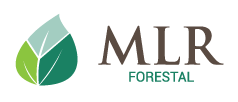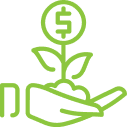News
This is how the life of small farmers who sell cocoa to MLR Forestal changes

At the end of 2019, the life of Don Juan López Diaz, a farmer from the San José del Hormiguero community, in the municipality of Siuna, took a turn that improved his quality of life. At that time, MLR Forestal contacted him and four other small producers from this neighboring area of the company and invited them to be part of a new project of which he is still part.
This consists of providing support for the establishment of their cocoa plantations. “We give them herbicide so that they can apply it to the plot where the plantation will be; later we see where the teak and cocoa plants that we give them are going to be planted; since the land is clean they sow corn, yucca and beans, and in those three months of temporary crops they receive income too. Then when the cocoa bears fruit, MLR buys the product at a good price, because our objective is to raise their economic level, that is, to pay them well,” explains Hernán Vélez, head of the MLR Forestal Cocoa Project.

“The relationship with the company is excellent”
Don Juan owns aproximately twenty acres of fertile land in this community located in the buffer zone of the Bosawas Biosphere Reserve, where “I sow everything,” he says with a smile. By “all” he refers to corn, beans, cassava, quequisque, plantain, banana, and cocoa.
Don Juan explains that he sells cocoa to MLR “First we held a meeting, we started selling and then we got the social service that consists in that they provide us with small cocoa plants so that we can sow it grafted. The relationship with the company is excellent because one acquires a lot of knowledge and if I don´t know something, I ask the company’s technician, Mr. Hernán Vélez, and he guides what we can do ”.
For don Juan, who lives in a community located about 350 kilometers from Managua, the capital of the country, it has represented an important change in life to have quality plants, technical assistance, a buyer who buys the cocoa it produces at an excellent price; and also have permanent access to training and opportunities for improvement.
The importance of working as a family
Don Juan is 63 years old and in his house there is a small grocery store that the residents of the area come to stock up on. As in most rural areas of Nicaragua, the houses are quite distant from each other.
Don Juan says that three sons work with him and together, they have planted ten cacao acres. His 22-year-old daughter Darling also participates in the activity; who is also a vital part of the family business as it is an excellent grafter.

“When they taught my father and my brothers to graft I went because I wanted to learn; the technician saw my interest, he began to teach me, he told me to graft about three trees to see if I had a good hand and that’s how I went little by little. I have grafted up to 120 plants in one day and 80 percent of the plants survive. It is something that some say has to do with the hand, but in reality it is based on the technique that one learns well ”, says the young woman.
A project in which everyone wins
After the passage of hurricanes Eta and Iota in November of last year, don Juan became concerned because both the cocoa and the 111 teak trees that he has planted had suffered havoc; But in the face of this emergency, MLR Forestal helped them.
“On behalf of the company they brought me a liquid called Quisol, we applied it and it helped a lot to restore the cocoa trees that had been left without leaves due to the hurricanes. As for the teak, due to hurricane Eta it was quite flat and the Iota straightened them, now they look straighter,” says López.

Hernán Vélez, supervises the farmers’ plots and attends to their needs, says that in the case of Don Juan, because he is already a cocoa farmer, he has only been reinforcing his knowledge in cultivation, but that there are different ones.
“Another man was a rancher, he had a plot without maintenance and with our arrival he has been seeing the results because the plot is already beginning to harvest and he is earning income. The farmer with all this knowledge is very interested in continuing to plant more for them and for us it has been a very positive experience,” says Vélez.
Share




